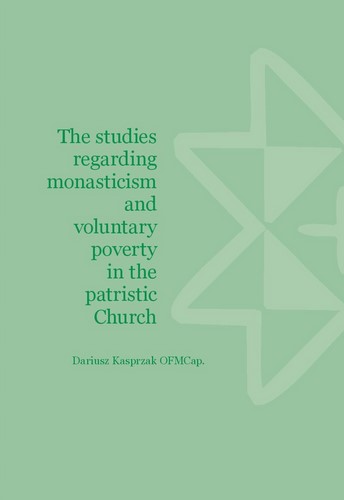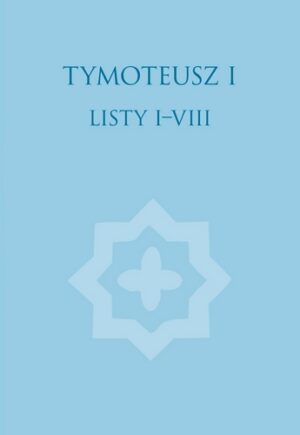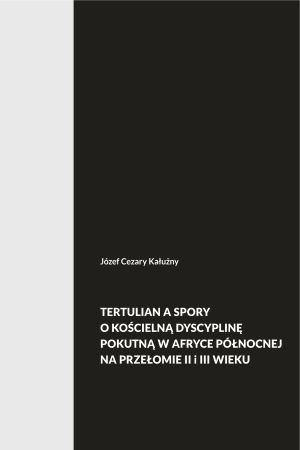TABLE OF CONTENTS
Introduction
I. The criteria of religion affiliation in the Christian community of the first and second century
1. The criteria of orthodoxy and heresy in Judaism of the 1st century after Christ
2. The criteria of orthodoxy and heresy in the New Testament
3. The criteria of orthodoxy and heresy in the Church of the 2nd century. Ignatius of Antioch, Justin Martyr, Irenaeus of Lyons
II. The idea of poverty i n the first to third century Church
1. New Testamental preaching and the ideal of consecrated poverty
2. Forms of patristic interpretations of evangelical poverty
3. Patristic Interpretation of Christ’s poverty (First to Fourth Centuries)
III. Rites of passage during monasti c initiation in the early monastic rules
1. Separation stage
1.1. The initial separation – the trial at the gate
1.2. Renunciation of private property
1.3. The clothing ceremony – the ritual of receiving the monastic garb (the habit)
2. The transition phase
3. The incorporation phase
IV. Wealth and poverty in the Western Imperial Church of the Fourth and Fifth Centuries – the attempt to synthesize the issue
1. The acceptance of the ownership right
2. The destination of material goods
2.1. The universal destination of goods
2.2. Moderate and decent use of material goods
2.3. Alms
3. The criticism of the wrong usage of material goods. Greed and usury
3.1. The criticism of greed
3.2. The criticism of usury
4. The Pelagian criticism of wealth
5. The monastic criticism of wealth
V. The concept of voluntary poverty i n the monastic writings of St. Augustine, the bishop of Hippo
1. The early reflections of St. Augustine on monasticism and voluntary poverty
2. Augustine’s mature/late reflections on the issue of voluntary monastic poverty
VI. The Eustathian context of the monastic poverty doctrine in the ascetic writings of Basil the Great
1. The pre‑Basilian concepts in Asia Minor – Estathius and the Eustathian Monasticism
2. The concept of monastic poverty in the ascetic writings of St. Basil the Great
VII. An analysis of the issues related to the virtue of poverty in the Western Church at the beginning of the sixth century. The case of the Rule of the Master ( Regula Magistri )
1. Preliminary issues concerning the virtue of poverty in the Rule of the Master
2. General instructions regarding the virtue of poverty for the candidates beginning monastic life
3. Poverty as a precondition accepted during the vows of monastic stability
4. The juridical dimension of poverty in the Rule of the Master
5. The spiritual dimension of poverty in the Rule of the Master
VIII. The Regulations concerning monastic poverty in the rule of Eugi ppius (530/535)
1. Eugippius of Noricum and his Rule
2. The theme of monastic poverty in The Rule of Eugippius
2.1. The Rule of Eugippius’ principles concerning monastic poverty taken from St. Augustine’s of Hippo Praeceptum
2.2. The Rule of Eugippius’ principles concerning monastic poverty taken from The Rule of the Master and The Rule of St. Basil
IX. The issue of possessing material goods in the teachings of St. Peter Chrysologus’s, the bishop of Ravenna
1. The acknowledgement of the right of property of material goods
2. The universal purpose of goods
3. Alms
4. Criticism of greed
5. Criticism of usury
X. Monastic life as proceeding the „narrow path” of obedience according to the Rule of Eugippius
1. Augustinian interpretation of monastic obedience
2. Obedience according to The Rule of the Master
2a. Undue obedience, i.e. non‑coenobite (in other words: sarabaite obedience or following „the wide path”)
2b. The due, i.e. coenobite obedience
Conclusion



 Tymoteusz I
Tymoteusz I KAŁUŻNY Józef Cezary
KAŁUŻNY Józef Cezary